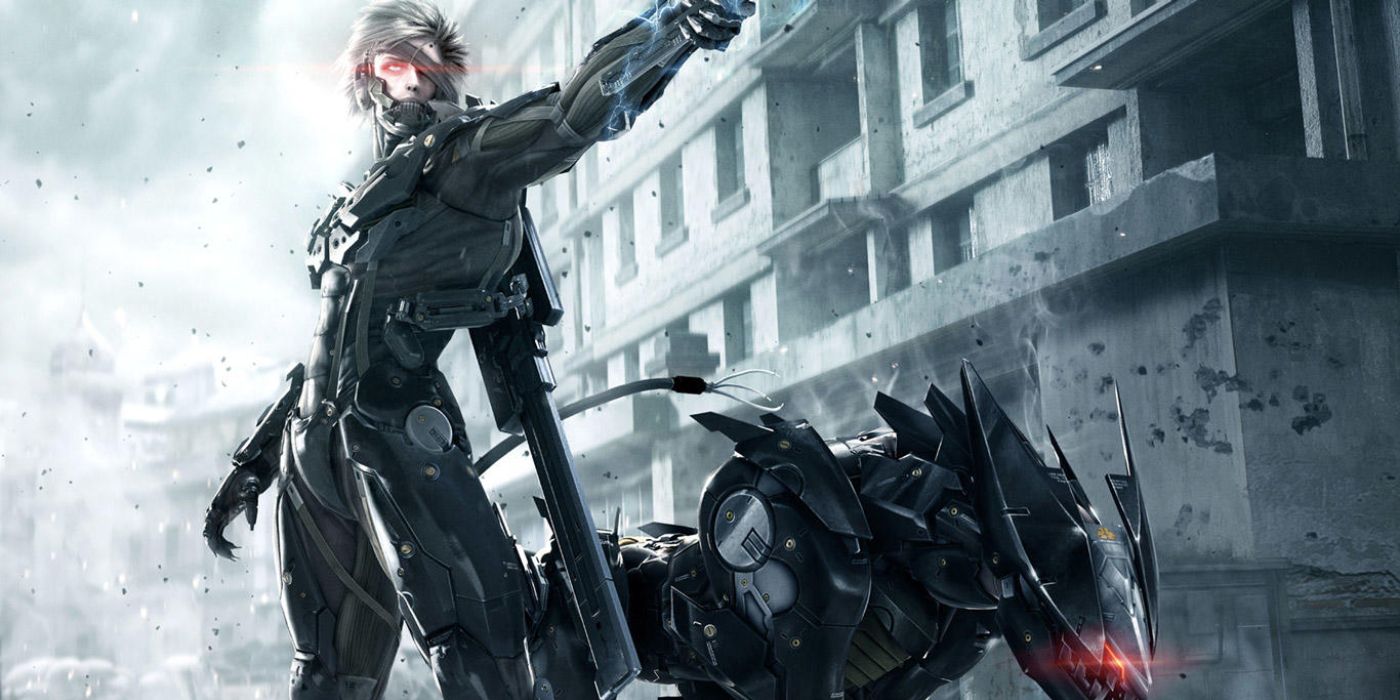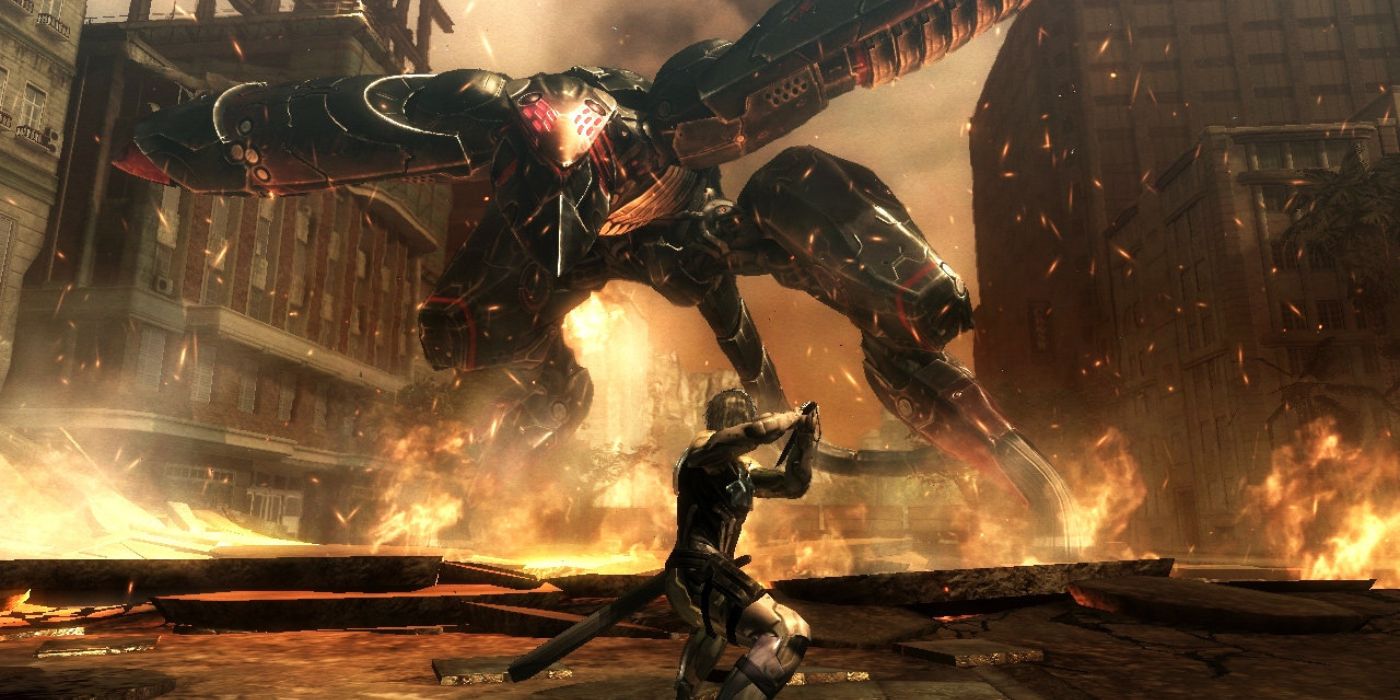No video game series has a tone or a set of themes quite as unique as Metal Gear Solid. The way in which it discusses politics, philosophy and war with a mixture of purposeful sobriety and comical absurdity has never been matched, and perhaps never will. When fans finally got their hands on the series' final core entry, they almost universally felt disappointment in the many ways Metal Gear Solid 5: The Phantom Pain failed to hit the same tonal and thematic notes. With that in mind, it's almost laughable how Metal Gear Rising: Revengeance, an offshoot title made by a different company, stayed more faithful to the series without even being in the same genre.
MGSV's shortcoming are not necessarily all purposeful decisions from the developers. MGSV's story is notoriously unfinished, and the series' creator and director, Hideo Kojima, had a widely publicized falling-out with the series' publisher, Konami, midway through its production. Konami underwent a massive corporate restructuring that year, and the final product of Metal Gear Solid 5 clearly shows the results. Despite it being an incredibly well-polished title in terms of gameplay, its comparatively weak story and dialogue meant the spirit of MGS seemed awkwardly absent.
On the other end of the spectrum, Metal Gear Rising suffered no such challenges during its production period and managed to achieve a tone more reminiscent of core Metal Gear games than MGSV. In fact, the company behind Rising, PlatinumGames, is widely regarded as one of the best developers of stylish action games in the world, making it an incredibly wise decision to divert from the series' typical stealth formula to more robust, hack-and-slash gameplay. However, this does little to affect the "Metal Gear-ness" of the game's tone, and for that purpose, it was Kojima Productions that was primarily in charge of the game's story.
Why Metal Gear Rising: Revengeance Is Better Than MGSV
The most popular example of MGSV's deficiency in tone is most assuredly the absence of David Hayter as Snake. Instead of the gravelly, sarcastic voice fans had fallen in love with back in MGS1, Snake was instead portrayed by Hollywood actor Kiefer Sutherland. Even more damaging was Snake's near-complete lack of dialogue. Metal Gear Solid 5's Snake scarcely opens his mouth, and when he does, it is never for very long. Gone are the days of the straight-faced, yet hokey speeches about personal philosophy or international politics that defined Metal Gear (aside from one awkward car ride with the villain). As confounding as the long-winded scenes full of ridiculous twists and turns were, they had a magic about them that enamored players. Half of the fun was dissecting speeches like this to understand certain characters or what was even going on, and once players did, things actually made some sort of sense.
Metal Gear Rising: Revengeance has these moments in spades. In fact, few moments in the entire series are as iconic as the main villain's "I Have a Dream" speech, which left player and protagonist alike equally shocked at the absurdity of the situation. It was Metal Gear Solid to a T, and the fact that the protagonist, Raiden, was played by the same voice actor that fans knew from MGS2 meant there was no disassociation between the old and the new. Players felt like they were playing as the same Raiden (as controversial as that is) they controlled throughout all of his previous title. Even if they were blatantly dicing up hordes of cyborgs with a katana while speed metal blared in the background instead of snooping around and hiding in boxes, it all still felt like it belonged in the Metal Gear universe.
Of course, Metal Gear Solid 5: The Phantom Pain still has its merits. No other game in the series is as polished and varied in its gameplay, nor does any provide the same amount of sheer content. Had it not been a Metal Gear game, it may have been hailed as one of the greatest stealth action games of all time. But it just doesn't feel like Metal Gear. The story doesn't boast any long-winded speeches contrasted by pure absurdity. The main character doesn't even have the same personality as the one fans knew all those years. Fortunately, Metal Gear Rising: Revengeance does have those things, and as a result, fans of the series accepted it with open arms, despite its major differences in gameplay and design.
Metal Gear Rising: Revengeance released for PlayStation 3 and Xbox 360 on February 19, 2013, and is also available on Mac and PC.


